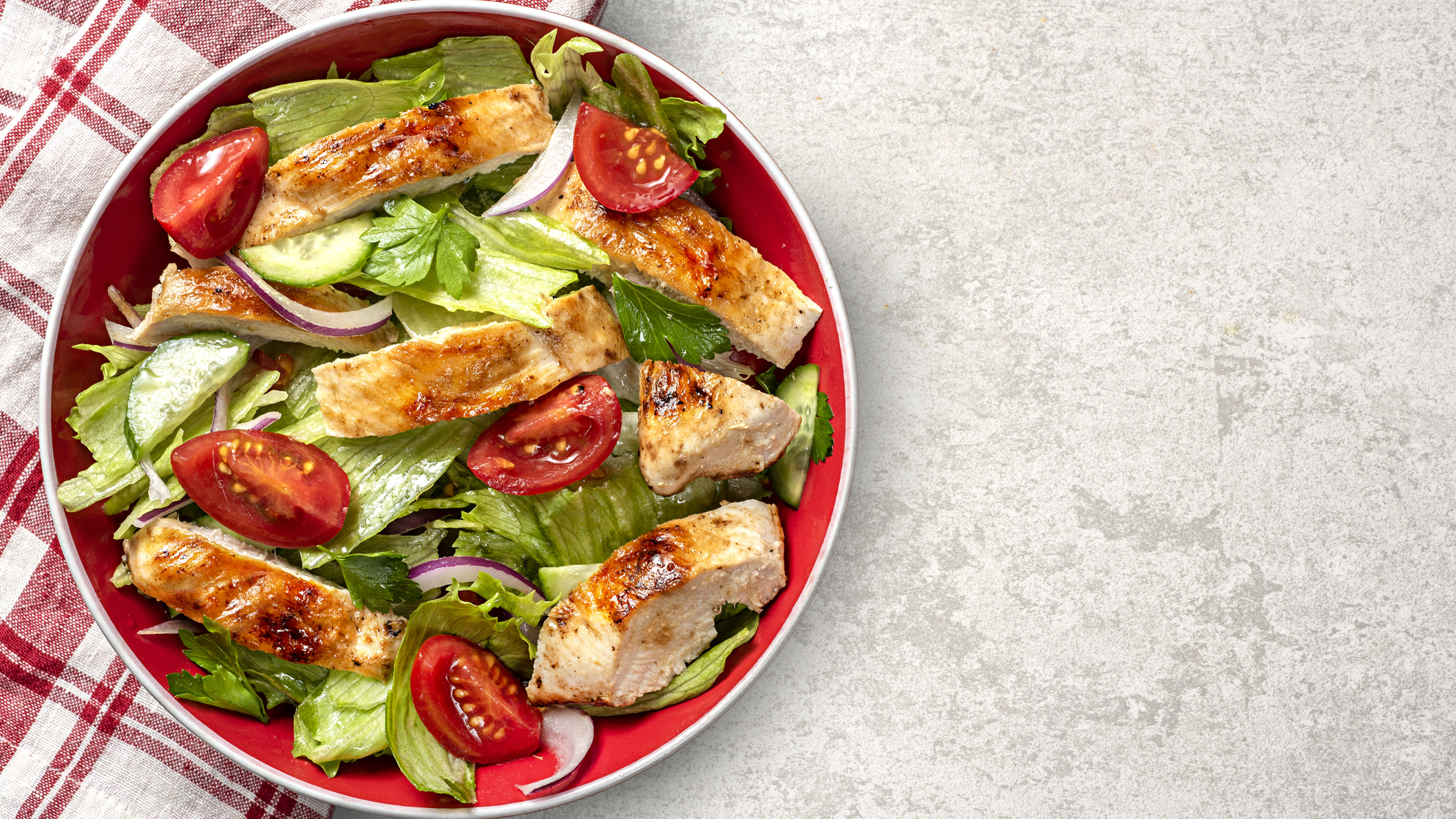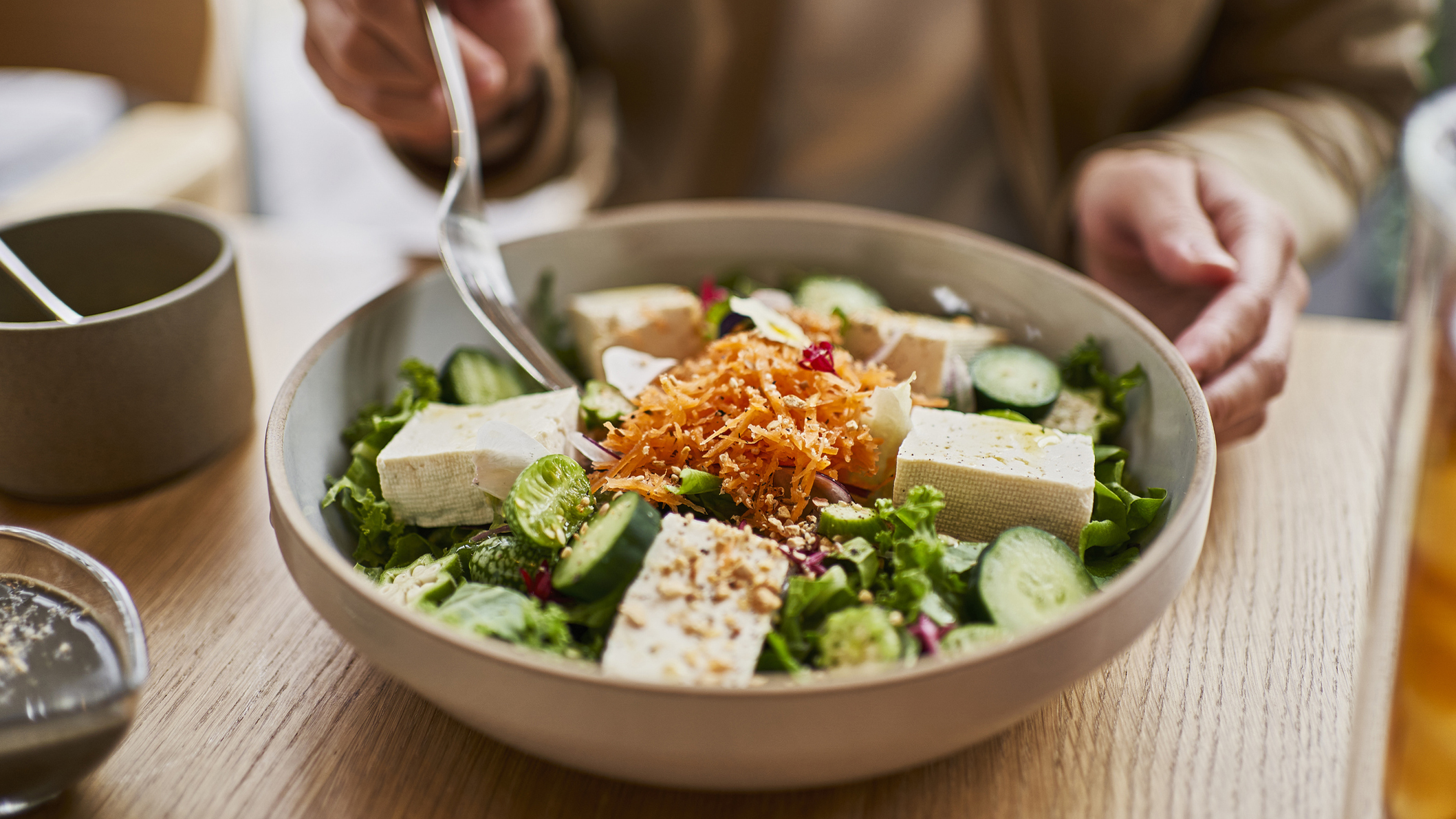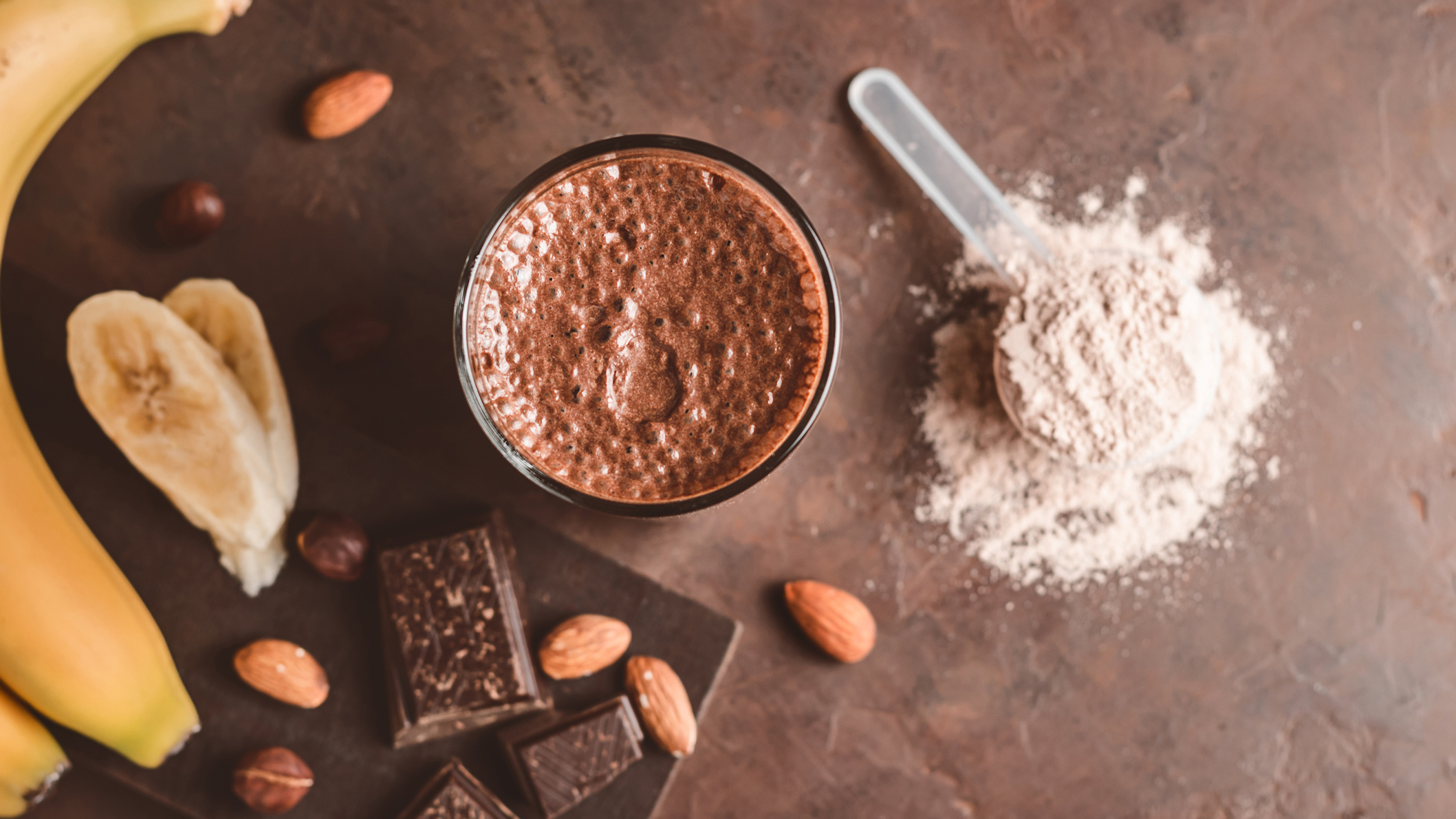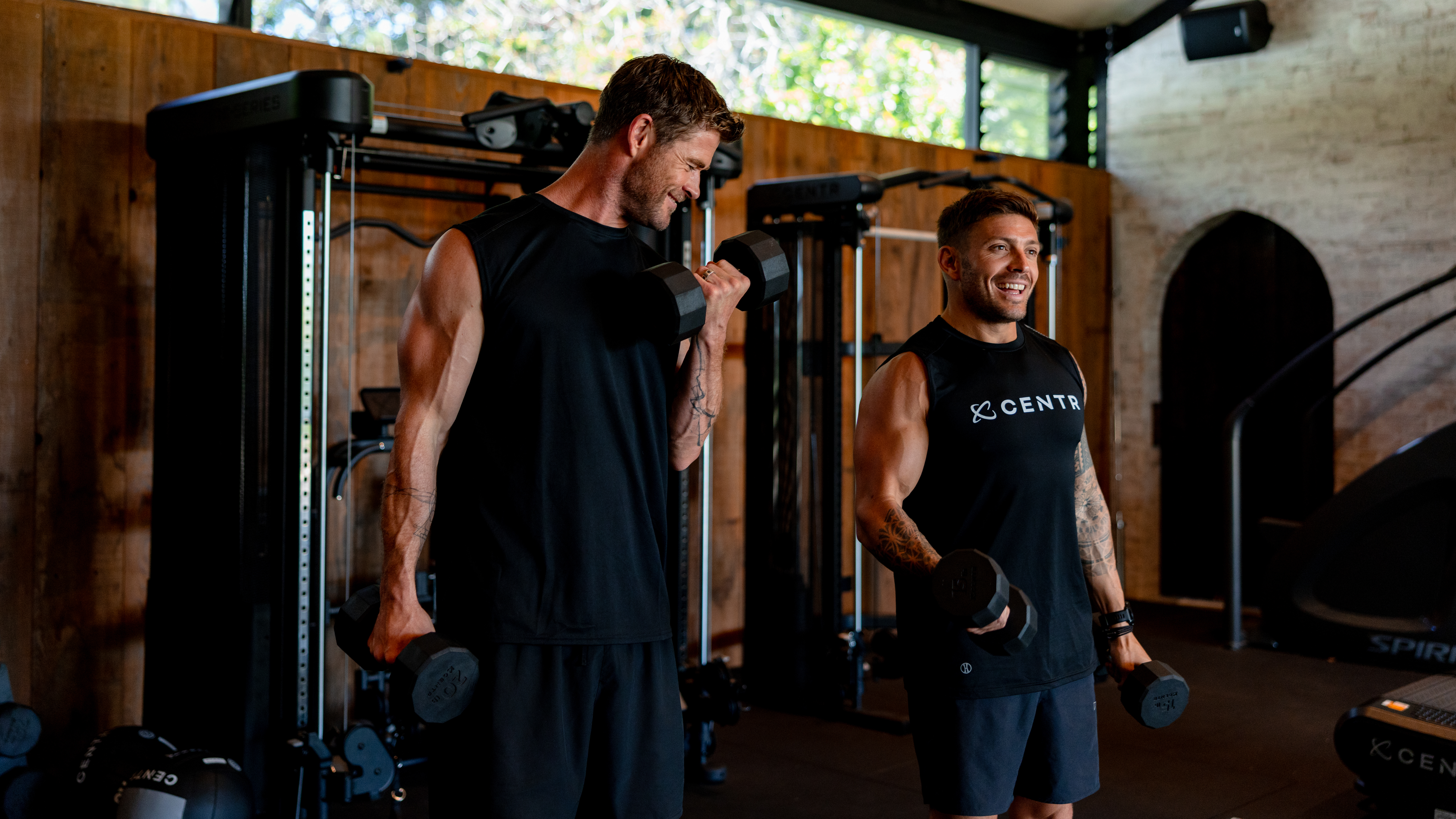Can eating protein help you lose weight?
Nutrition experts explain the relationship between protein and weight loss

Protein is important for muscle growth and repair, but it can also be useful when you’re dieting. The macronutrient helps promote feelings of satiety, which makes it easier to maintain the all-important calorie deficit needed for weight loss, plus it can positively affect your metabolic rate.
But how much should you be eating? And how exactly does it impact your metabolism? We asked nutrition experts to break it down for us.
How does protein affect weight loss?
If you’re trying to lose weight, then you’ll need to achieve a calorie deficit, which means consuming fewer calories than you expend. Protein can make you feel fuller for longer (it actually boosts the production of certain satiety hormones) so it can help you avoid hunger pangs when you’re dieting.
According to Emily Servante, a certified personal trainer at Ultimate Performance, it can also help with body composition. Eating an adequate amount of protein, while maintaining a calorie deficit, will encourage your body to tap into your fat stores for energy, rather than attacking muscle tissue. She recommends combining high-protein foods with resistance training, if you’re trying to retain muscle and shift fat.
She also explains that protein requires more energy to digest than other foods. “When you consume protein, your metabolism will actually speed up because of the energy necessary to digest, process, and absorb it,” she explains.
This is known as the 'thermic effect' of food. Protein has a much more pronounced thermic effect than carbs and fats, which means that digesting it will burn more calories.

Emily began lifting weights when she was 25 and, a couple of years later, took her personal training qualification. After working in commercial gyms for about two years, Emily took up a role as one of Ultimate Performance’s top-ranked female personal trainers at U.P.’s London City and Kensington gyms, where she worked with scores of clients to help them achieve their body transformation goals.

There are other reasons you should make sure you're eating plenty of protein when you're dieting, too. Clare Bailey, a UK-based doctor and representative for The Fast 800, explains that we need to constantly top up our protein supply as we can’t store it within our bodies.
Get the Fit&Well Newsletter
Start your week with achievable workout ideas, health tips and wellbeing advice in your inbox.
“Unless you get an adequate amount on a daily basis then your body will tell you to go on looking for it. You will eat and eat and still stay hungry until you have topped up your protein supply. And if you still don’t get enough then your body will scavenge protein from your muscles," she explains.
“On the other hand if you eat far more protein than you need, your body breaks it down and converts it to sugar, leading to weight gain.”

Dr. Clare Bailey is a general medical practitioner doing diet research with Oxford University. She is the author of The 8-Week Blood Sugar Diet Cookbook, and is married to Dr. Michael Mosley, author of The Clever Gut Diet, The Fast Diet, and The 8-Week Blood Sugar Diet. She is also founder of Parenting Matters, an organization that helps parents become more confident through courses and one-to-one consultations.
How much protein should I eat to lose weight?
Marine Melamed, a registered dietitian at Lumen, says: “The FDA recommends a minimum of 0.8g of protein per kilogram of bodyweight. On a high-protein diet, we usually consume between 1.6 to 2.2g of protein per kilogram of bodyweight.”

Marine is a registered dietitian from France with a passion for well-being, health and metabolism. She started her career as a clinical dietitian, opened her private practice to accompany patients from various backgrounds in their health journey, and is now providing nutrition support for Lumen’s customers.
Dr Bailey gives us a more general figure as a daily intake requirement: “The minimum amount of protein needed is around 50 to 60g, but as you get older you need more protein, closer to 100-120g, with men needing the higher amount,” she says.
“Most weight loss diets, especially vegetarian and vegan, contain inadequate amounts of protein making it hard for people to stick to them.”
While in a calorie deficit, fighting hunger pangs can be a real worry, but a review in the British Journal of Nutrition indicates that eating protein can cause feelings of satiety even when in a negative energy balance.
Can you lose weight with protein powder?

Servante tells us that protein powder can be great for boosting your protein intake, particularly after training.
“Protein powder is a very quick and convenient way of consuming moderate amounts of protein in one easy hit. Rather than having to rustle up a fillet mignon or a grilled chicken salad in your lunch hour—which may be impossible if you work in office or you’re constantly on the go without access to a kitchen—a scoop or two of protein powder mixed with either water or milk means you can give yourself an easy to digest and rapid hit of protein,” she says.
Want some recommendations? Have a look through our guide to the best protein powders for weight loss, which outlines exactly what you should be looking for when you pick a product.
Eating excess protein powder could make you gain weight though, so check your calorie intake before adding it to your diet.

Lou Mudge is a Health Writer at Future Plc, working across Fit&Well and Coach. She previously worked for Live Science, and regularly writes for Space.com and Pet's Radar. Based in Bath, UK, she has a passion for food, nutrition and health and is eager to demystify diet culture in order to make health and fitness accessible to everybody.
Multiple diagnoses in her early twenties sparked an interest in the gut-brain axis and the impact that diet and exercise can have on both physical and mental health. She was put on the FODMAP elimination diet during this time and learned to adapt recipes to fit these parameters, while retaining core flavors and textures, and now enjoys cooking for gut health.
-
 Build blockbuster arms and abs with Chris Hemsworth's go-to dumbbell circuit
Build blockbuster arms and abs with Chris Hemsworth's go-to dumbbell circuitAll you need are adjustable dumbbells and 20 minutes
By Sam Rider Published
-
 Forget crunches—if I wanted to improve core strength I'd do this neck-friendly Pilates workout
Forget crunches—if I wanted to improve core strength I'd do this neck-friendly Pilates workoutAnd it takes just five minutes
By Maddy Biddulph Published